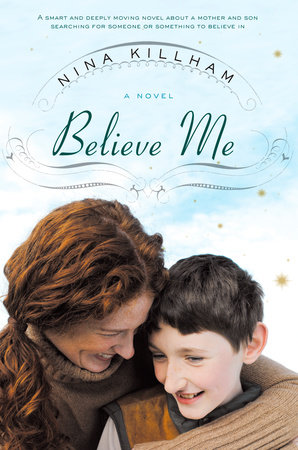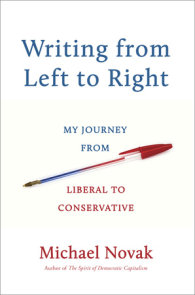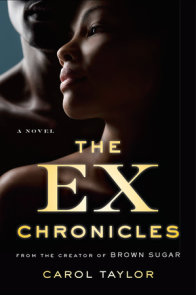READERS GUIDE
Questions and Topics for Discussion
INTRODUCTION
Thirteen-year-old Nic Delano has a lot of questions. Like why does he have a babysitter at his age—and where did she get such long legs? Why do his parents live in separate towns? But mostly, what exactly is the meaning of life?
His mother, Lucy, an astrophysicist and atheist, has always encouraged Nic to ask questions. But lately she doesn’t like the answers her son is getting. Nic—named after Nicolas Copernicus—has been hanging around a group of devout Christians and is starting to embrace the Bible—and a very different view of the heavens. He even volunteers their home to shelter the local reverend, a Nigerian named Dele Ombatu, who considers Jesus his best friend and Lucy his greatest challenge.
When an unexpected tragedy strikes, however, Nic and Lucy’s beliefs are truly put to the test as they discover they need each other now more than ever. But will a mother and her son be able to find a common ground where faith meets understanding and love is ultimately what endures?
ABOUT NINA KILLHAM
Nina Killham was born in Washington, D.C., the daughter of an American Foreign Service officer, and lived overseas much of her childhood. She is a graduate of the College of William and Mary, which she fled her junior year to live in Paris and eat. One of her first writing stints was for the Washington Post Food Section where she wrote about local food personalities and tested endless recipes.
After writing about travel and lifestyle for national magazines, she went off to Los Angeles to gain fame and fortune as a screenwriter and ended up working as an assistant for Columbia Pictures where grown men fought like children over parking spaces and made their secretaries pick peanut M&M’s out of a mixed candy dish because well…they don’t like peanut M&Ms. She finally left the studio to write the screenplay that was going to make her famous and rich, ending up six months later as a secretary in an ear plug factory.
She is now married to an Australian who is a senior lecturer at the London School of Economics. They live in London, have two young children and like to bicker about the meaning of life. She is also the author of How to Cook a Tart, and Mounting Desire. Believe Me is her third novel.
A CONVERSATION WITH NINA KILLHAM
Q. How much of the novel is based on your own experience?
The idea for Believe Me stemmed from my own indecision about whether to raise my children with a religious faith. I am a lapsed Catholic. My husband is a mouthy atheist. I call him a devout Darwinist. In fact, the germ of this story occurred a couple of years ago when my daughter was about six and she was asking my husband whether heaven existed and he said no and she started crying. After I calmed her down, saying Daddy had his opinions but that didn’t necessarily mean that they were true, I came and hissed at him, “You can’t deny a six-year-old child heaven.” And I began to wonder, what are the consequences of denying a child a belief in heaven?
Q. Did you know much about stars before you wrote the novel?
I knew embarrassingly little about the celestial neighborhood I live in. Basic things I should have known like What is the speed of light? What is our closest star? What is the sun made of? It’s shocking how little I knew. So I had a ball researching. I loved bringing home all these astronomy books from the library. I started with the ones in the children’s section to give me a foundation before I moved on to ones with more words and fewer pictures. My children and I would pour over them. Now my nine-year-old daughter walks around talking comfortably about Andromeda and Copernicus and relativity. In the past too many women would throw up their hands and say ‘Ooh, don’t know much about science.’ That’s changing and that’s great. It’s very important to know about science. Science is life. And as Richard Dawkins argues in Unweaving the Rainbow, knowing how something works does not take away the wonder, it just enhances it.
Q. Describe a work day.
I try to get up early because I think I work best then as my head is less filled with daily clutter. I sneak downstairs so as not to wake my children and sit in a chair by the window, drinking strong coffee and writing long hand. If I’m lucky, a fox will appear in the garden, which never fails to thrill me as we live in urban London. It’s a glorious way to begin the day because it’s just me and the quiet. Though I do end up wasting a lot of time talking to myself, whole conversations, until suddenly I hear Mommy! and my time is done. After I’ve dropped my kids at school I come back but the magic is gone and it’s more official hard work, sitting at the computer and trying not to check my emails a hundred times while I get the writing done. Soon it’s time to pick up the kids and manage their chaos. I don’t even have time to think about my characters until it’s early morning again and hopefully they come out to play.
Q. What is the hardest part about writing?
Besides the obvious discipline required to apply seat to chair, I find the biggest challenge to writing is just keeping calm. Not falling to the floor in a hissy fit or slitting my wrists in a funk when things are not going well and equally not taking a week long break because I’ve just written what has got to be the best sentence in the history of mankind. Because I know when I return to that sentence the next day it will have surely deflated. So it’s just about keeping calm and putting one word down after the other. When I think about it, so much of writing a novel is like walking: giving yourself a direction and then putting one foot in front of the other, one sentence after the other, and moving towards your destination. So for a year or so all my writing is mush and I have to just keep at it, shaping it until it becomes recognizable as a novel. Or to use another belabored analogy, it all starts off as a messy soup from which I try to pull a twelve course dinner.
Q. You mention a piece of music, Beethhoven’s Violin Concerto in D Major, in Believe Me. Do you listen to music when you write?
No, not usually. Usually, I like to have complete silence but I heard that on the radio one day and fell in love with it. I bought the CD and played it several times while I wrote that passage.
Q. How do you come up with titles for your novels?
After I’ve finished a draft I give the novel to a friend who kindly reads it for feedback. When I’m done with my last draft, my husband and I get together with this same friend and his wife for dinner, and accompanied by copious amounts of red wine, we throw out title ideas. Luckily most of them never leave the room. It’s my favorite part of the whole process.
Q. What are you working on now?
A novel about displacement. I’ve been living in London for almost ten years now. I’m married to an Australian and my children are being brought up in Britain. So we’re all a bit confused at this point. Of course it’s not just a big international city situation, it’s becoming more of a global theme. As there is more mobility, more couples marry across cultures and create third culture children. I was considered a third culture kid myself because my father was in the American Foreign Service and we lived overseas a lot. So it’s something I’ve been dealing with a long time and I thought I’d finally explore it.
DISCUSSION QUESTIONS






















